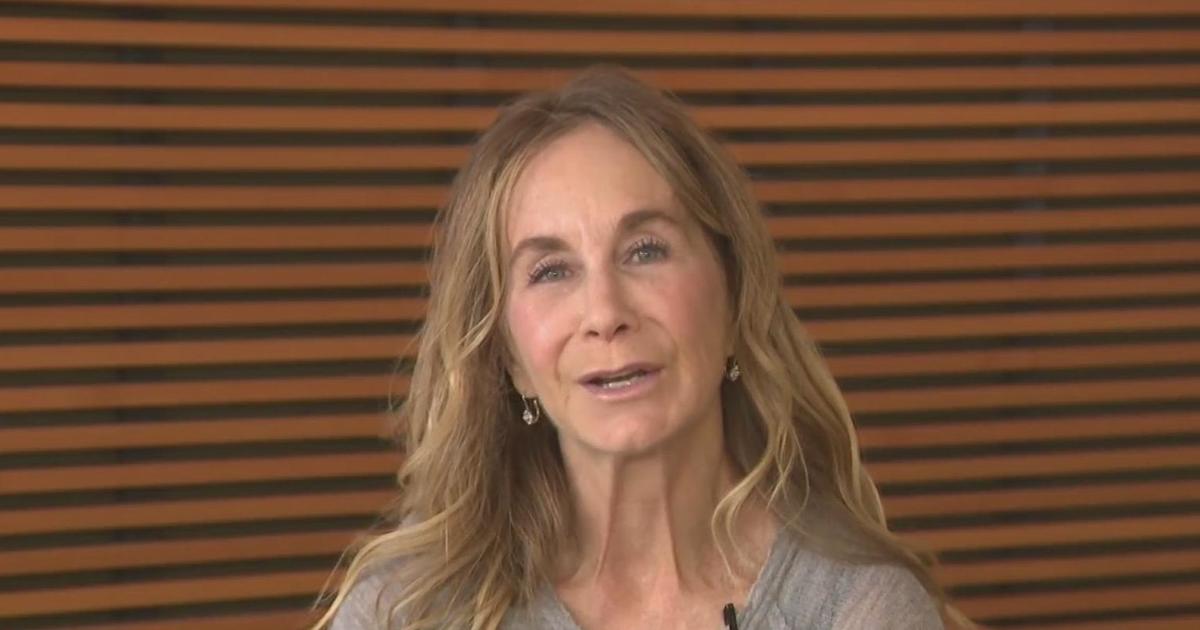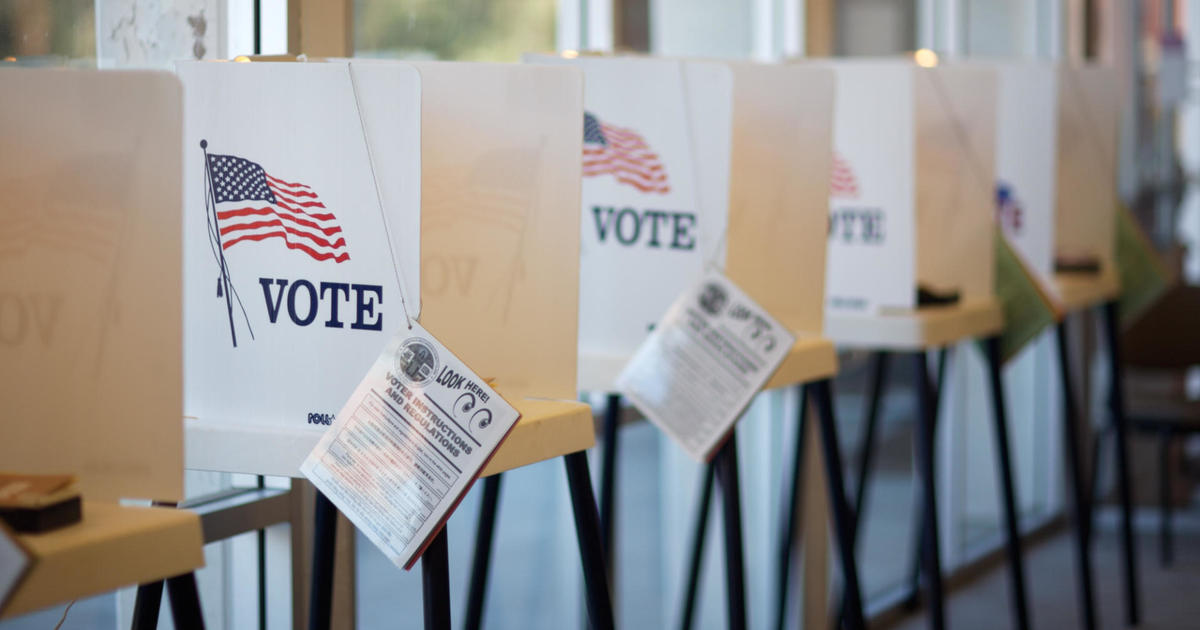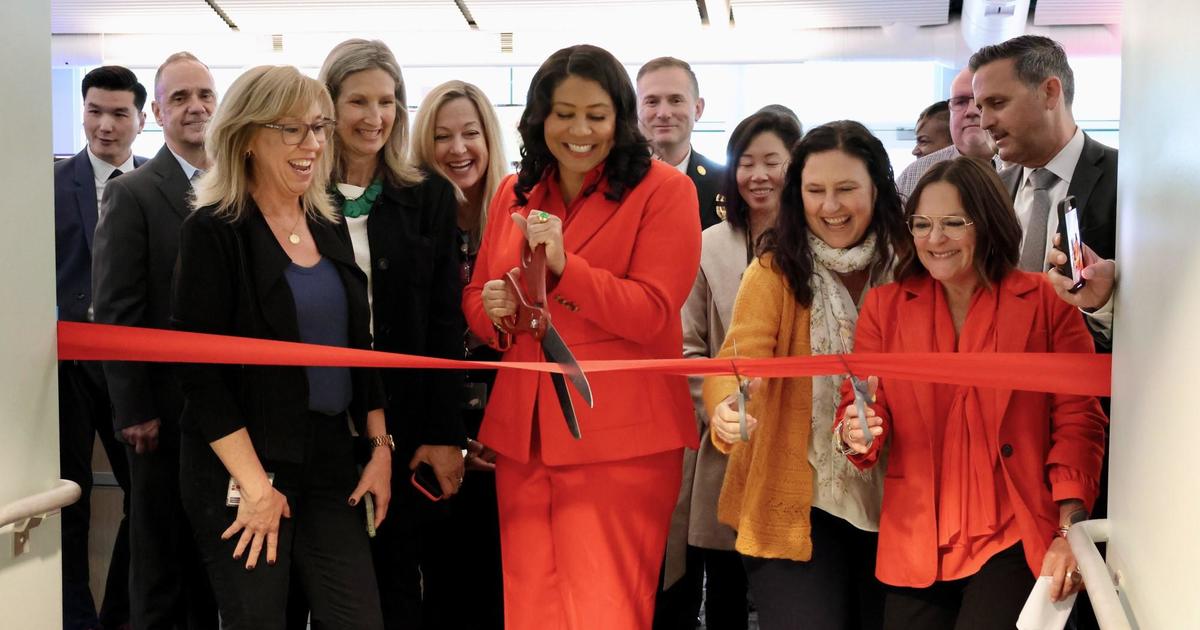SF Supes Approve Ban On City Profiting From Jail Inmate Phone Calls, Services
SAN FRANCISCO (CBS SF) -- San Francisco Supervisors on Tuesday unanimously approved a measure permanently banning the city from profiting off jail inmates and their families via services such as phone calls and commissary items.
The People Over Profits ordinance, authored by Supervisor Sandra Fewer, builds on efforts by Mayor London Breed and former Sheriff Vicki Hennessy to make jail phone calls free and stop price markups for commissary items such as soap, food or coffee.
Fewer's ordinance makes the reforms permanent and ensures that the city can't generate revenue through other services such as video calls and access to computer tablets. It also aims to make those services available to inmates at no cost or at the lowest cost possible.
The ordinance is the first of its kind in the nation, she said.
"During the last recession, local governments dramatically increased their reliance on fines and fees to fill budget gaps. But that can't be our practice now. Low-income people and communities of color pay the price. We want to ensure we'll never again return to this practice of generating revenue from incarcerated people and their families," Fewer said during a morning new conference before the meeting.
In June 2019, Breed and Hennessy first moved to stop charging inmates for phone calls and end marking up commissary items like soap, food and coffee, in an effort to remove financial barriers to reentry for incarcerated people.
Sheriff Paul Miyamoto is in support of the legislation.
"Being the first county in the nation to do this, we are leading from the front," Miyamoto said. "We know that staying connected with your loved ones and the community is an important and critical part in making sure that people are successful in regards to rehabilitation and reentry out of the criminal justice system."
San Francisco Public Defender Mano Raju, who previously called the fees predatory said, "We hope that this is a model that continues throughout the state, to be replicated, and throughout the nation."
Also, during Tuesday's meeting, Supervisor Hillary Ronen introduced an emergency ordinance that expands employment protections for workers who can't work because they must quarantine due to either testing positive for COVID-19 or having been exposed.
The SAFER, or Safeguard Against Firings and Employer Retaliation, Act would prohibit employers from retaliating, firing, threaten to fire, or discriminate in any other way against an employee who needs time off to quarantine. Although some city, state and federal laws protect workers, the protections are fragmented and the ordinance would fill in loopholes.
"For many San Francisco workers, especially low-wage workers, there is a serious and legitimate reluctance to take a COVID-19 test if they believe that a positive diagnosis and the need to quarantine could lead to them being fired from their job," said Supervisor Ronen. "During these times of economic uncertainty, people are unwilling to do anything that might put their ability to work and earn an income at risk, even if that means foregoing something as important as a COVID-19 test."
She added, "This ordinance is necessary to remove barriers to COVID-19 testing by addressing workers' underlying fear of losing employment due to a COVID-19 diagnosis or the need to quarantine. This in turn will protect these workers, help contain the spread of the virus, and facilitate the gradual reopening of the economy."
Supervisor Gordon Mar also introduced an ordinance that would establish the Workforce Education and Recovery Fund, which would be used to invest in workforce training programs at City College of San Francisco.
City College cut hundreds of classes last semester due to a budget deficit and with over 1,000 more expected to be cut this coming school year on top of the impending economic fallout from COVID-19, Mar said now is the time to invest in workforce education.
"Investing in education and workforce training pays dividends, and we have a responsibility to ensure economic recovery includes workers and lifts up our most vulnerable communities--communities who can't afford to be left behind," said Mar.
Although no funding source has been attached to the ordinance, Mar said he's working with City College stakeholders to create a 2-year pilot program to be considered through the city budget process.
Mar said his ordinance replaces a charter amendment he proposed in May for the November 2020 ballot that would have asked voters to approved providing $20 million from the city's general fund for expanding City College's educational programs.
Also on Tuesday, supervisors Mar, Catherine Stefani and Shamann Walton introduced an emergency ordinance to waive business registration and license fees for restaurants, food service businesses or businesses previously deemed non-essential with gross receipts of up to $1 million, operating in a commercial space.
If approved, those businesses would automatically receive the benefits. The ordinance could save 13,000 to 20,000 city businesses a total of $5.2 million, Mar's office said.
© Copyright 2020 CBS Broadcasting Inc. and Bay City News Service. All Rights Reserved. This material may not be published, broadcast, rewritten or redistributed.



